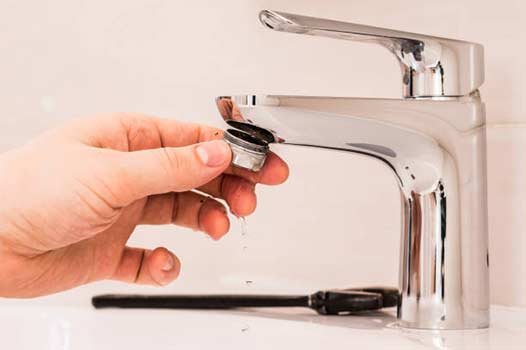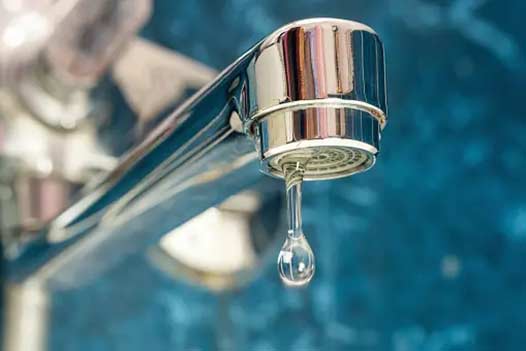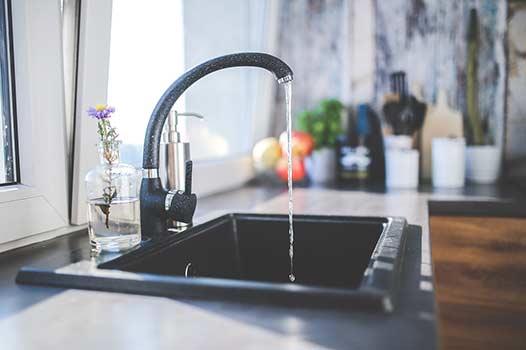
When it comes to faucets in our homes, we often take them for granted until they start malfunctioning. Whether it’s a leaky faucet or a problem with the water flow, these issues can be quite bothersome. In such cases, homeowners are often faced with the dilemma of whether to repair the faucet or replace it altogether. Here we aim to provide guidance on when it is appropriate to repair or replace a faucet based on various factors, ensuring that homeowners make an informed decision.
Signs of Faucet Problems
Before delving into the decision of repair or replacement, it is important to identify signs that indicate faucet problems. Recognizing these signs early on can save homeowners from more extensive damage and costly repairs.
Some common signs of faucet problems include:
- Leakage from the spout or base
- Inconsistent water pressure
- Stiff or difficult-to-turn handles
- Sudden decrease in water flow
- Noisy faucet operation
- Rust or corrosion
Factors to Consider
When determining whether to repair or replace your faucet, there are several factors you should take into consideration.
Age of the Faucet
The age of the faucet plays a crucial role in deciding whether to repair or replace it. Most faucets have a lifespan of around 15-20 years, depending on the quality and maintenance. If your faucet is nearing the end of its lifespan and experiencing frequent problems, it may be more cost-effective to replace it rather than continually repairing it.
Cost of Repairs
Assessing the cost of repairs is another vital factor to consider. If the cost of repairing the faucet is significantly lower than the cost of a new faucet, it might be worth opting for a repair. However, if the repair cost is close to or exceeds the cost of a new faucet, a replacement would be a wiser investment in the long run.

The age of the faucet plays a crucial role in deciding whether to repair or replace it.
Availability of Replacement Parts
Availability of replacement parts for your specific faucet model is an important consideration. Some older or unique faucet models may have discontinued parts, making repairs difficult or expensive. Before deciding on repair or replacement, contact a professional plumber or visit a specialized store to ensure the necessary replacement parts are accessible for your faucet.
Energy Efficiency
With the growing focus on energy conservation, upgrading to a more energy-efficient faucet can be a significant consideration. Older faucets may lack the latest water-saving features, resulting in higher utility bills and unnecessary water wastage. In such cases, replacing the faucet with a newer, eco-friendly model can have long-term financial and environmental benefits.
Aesthetic Appeal
The overall aesthetic appeal of your faucet and its compatibility with the surrounding decor should also be taken into account. If your faucet no longer complements the style of your bathroom or kitchen, replacing it presents an opportunity to upgrade to a more visually appealing option that enhances the overall ambiance of the space.
When to Repair
Deciding to repair your faucet instead of replacing it is often a suitable option in certain scenarios.
Minor Leaks
If your faucet is experiencing minor leaks from the spout or base, these issues can typically be resolved with a repair. Often, a faulty washer or O-ring is responsible for the leakage, and replacing these small components can make the faucet as good as new.
Simple Mechanical Issues
Problems like stiff handles or loose connections can often be fixed with simple repairs. Tightening loose parts or applying lubrication to stiff handles can restore the smooth functioning of your faucet without the need for a full replacement.
Low Repair Costs
If the repair costs are minimal and significantly lower than the cost of a new faucet, opting for a repair can be a cost-effective choice. In these situations, professional plumbers can assess the problem and provide an estimated cost for the repair.
When to Replace
Although repair is a viable option in some cases, there are instances where replacing the faucet is the more prudent choice.
Extensive Damage or Corrosion
If your faucet is extensively damaged or shows signs of corrosion, repairing it may only offer a temporary solution. In such cases, replacing the faucet entirely ensures a reliable and long-term fix, preventing further damage and potential water leakage.
Frequent Repairs
If your faucet requires frequent repairs and continues to experience problems, it may be indicative of larger underlying issues. Constantly investing in repairs can be a financial burden, especially when the cumulative cost exceeds the price of a new faucet. Replacing your faucet in these circumstances saves you from the hassle and expense of regular repairs.

Modern faucets often come with touchless operation, adjustable water flow options, and water-saving aerators, resulting in improved functionality and reduced water consumption.
Upgrade to Modern Features
If your current faucet lacks the latest technological advancements and water-saving features, replacing it with a newer model can provide added convenience and efficiency. Modern faucets often come with touchless operation, adjustable water flow options, and water-saving aerators, resulting in improved functionality and reduced water consumption.
Renovation or Remodeling
If you are planning a renovation or remodeling project that involves updating your bathroom or kitchen, replacing the faucet is a logical step. Choosing a faucet that complements the upgraded design and aligns with your overall vision allows for a cohesive and aesthetically pleasing outcome.
Conclusion
Deciding whether to repair or replace your faucet requires careful consideration of various factors, including the age of the faucet, repair costs, availability of replacement parts, energy efficiency, and aesthetic appeal. Evaluating these aspects enables homeowners to make an informed decision that best suits their needs and budget. While repairs can suffice for minor issues and low-cost fixes, replacement is often the wiser choice for extensively damaged faucets, frequent repairs, technological upgrades, and renovation projects. Seeking professional advice from a plumber can further assist in determining the most suitable course of action for your specific faucet dilemma.